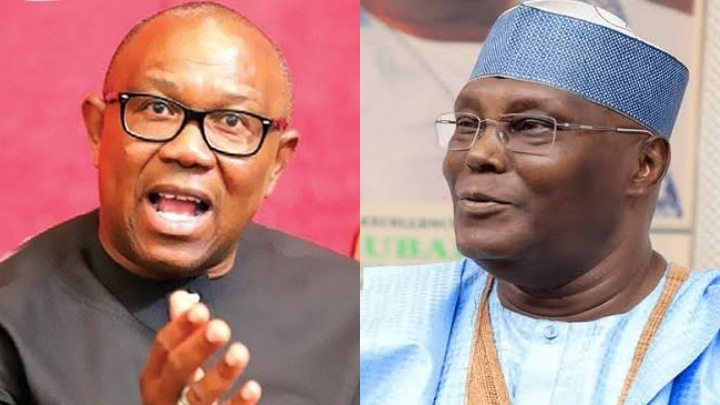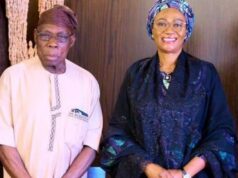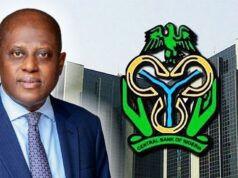
There was a mild drama at the presidential election petition court (PEPC) yesterday over claims by the Peoples Democratic Party (PDP) and its presidential candidate, Atiku Abubakar, that the Independent National Electoral Commission (INEC) deliberately deleted presidential election results from the Bimodal Voter Accreditation System (BVAS) machines.
Atiku and presidential candidate of the Labour Party, Peter Obi, are currently before presidential elections petition court where they are contesting the emergence of President Bola Ahmed Tinubu as winner of the February 25 presidential election on the platform of the governing All Progressives Congress (APC).
It started when Atiku’s witness, Hitler Nwuala, told the court sitting in Abuja that the electoral umpire deliberately deleted all the results of presidential elections from the BVAS machines of the Federal Capital Territory (FCT) under the guise of preparing for the March 18 governorship election.
Nwuala, a forensic expert, who was the 26th witness for Atiku claimed that he inspected 110 BVAS devices used during the presidential polls in the FCT and all the machines he inspected had their data deliberately deleted.
But when counsel to INEC, Abubakar Mahmoud presented a BVAS machine to the court for demonstration, which he asked the witness to access and show proof that the data was deleted, Nwuala refused to operate the machine on grounds that it against professional ethics for him to do so in court.
Nwuala maintained during cross-examination by INEC’s lawyer, Abubakar Mahmoud, that it was unnecessary for the electoral body to have deleted the presidential election result data from BVAS machines used in the FCT because the FCT did not hold governorship elections.
Led in his evidence by the lead counsel to the petitioners, Atiku and PDP, Chris Uche (SAN), the subpoenaed witness told the court that he examined 110 BVAS machines as sample material from the FCT and submitted a report of his investigation carried out on the BVAS.
Despite objections by the respondents, INEC, Tinubu and the APC, the court admitted the report as evidence and marked it as exhibits, just as the petitioners tendered a certificate of compliance to indicate that the report had complied with the Evidence Act.
Nwuala who was under cross-examination by counsel to INEC maintained during cross-examination that since there is a deviation in the small sample space of 110 samples analysed, “it is likely to increase as the number of sample size increases.”
He said he “worked on 110 BVAS machines, which formed the primary source of information for his forensic report.”
According to him, the machines inspected were only those from the FCT and that he did not know at what point the results were deleted from the machines.
The witness further noted that he attached a standard device to the BVAS machine to carry out his investigation.
But challenging the allegation, INEC argued that because the witness could not inspect all the machines, his claim was wrong.
When Nwuala maintained his stance, INEC’s lawyer, Mahmoud, presented to the court, for demonstration, a BVAS machine, which he asked the witness to access and show proof that the data was deleted.
The witness refused, saying it was professionally wrong for him to access the machine directly.
Nwuala said, “We don’t access the source of evidence directly. We extract the evidence and access it from another source. If we access it now, the content will change and will tamper with the evidence. It is professionally wrong to tamper with evidence that will be relied upon in a court of law.”
INEC insisted the BVAS must be inspected in court, but the chairman of the five-member panel of the court, Justice Haruna Simon Tsammani, reminded the respondent counsel that the allotted time for conducting his cross-examination had elapsed.
In his submission, counsel for President Tinubu, Wole Olanipekun (SAN), pointed out disparities in the forensic report concerning the number of machines inspected by the witness.
Olanipekun contended that the report could also be riddled with errors, but the witness told the court that the differences dictated in the numbers were typographical errors.
He confronted the witness with a portion of his report where he said that from his inspection of the machines, “nothing was intrinsically wrong with them”, and asked him if he was in Abuja during the presidential poll.
“Were you in Abuja on the day of the presidential election? If you were not in Abuja, how then can you know that there was nothing intrinsically wrong with the machines on the day of the election?” Olanipekun queried.
Nwuala said he was not in Abuja and so he couldn’t have known if something went wrong with the machines on the day of the election.
Meanwhile, Atiku and his party continued their battle against the declaration of President Bola Ahmed Tinubu as the winner of the election with the tendering of certified exhibits in four more states of the federation.
The exhibits tendered are certified true copies of INEC’s Form EC8A used by the electoral body during the presidential election.
The sensitive documents were tendered in 20 local government areas of Ogun, 17 local government areas of Ondo, 27 local government areas of Jigawa, and 20 local government areas of Rivers State.
Although the admissibility of the exhibits was vehemently opposed by INEC, Tinubu, and the All Progressives Congress (APC), who are the three respondents in the petition, the court went ahead and admitted them.
While the court would entertain further hearing on the petition today, PDP and Atiku are expected to close their case after today’s proceedings.



















































